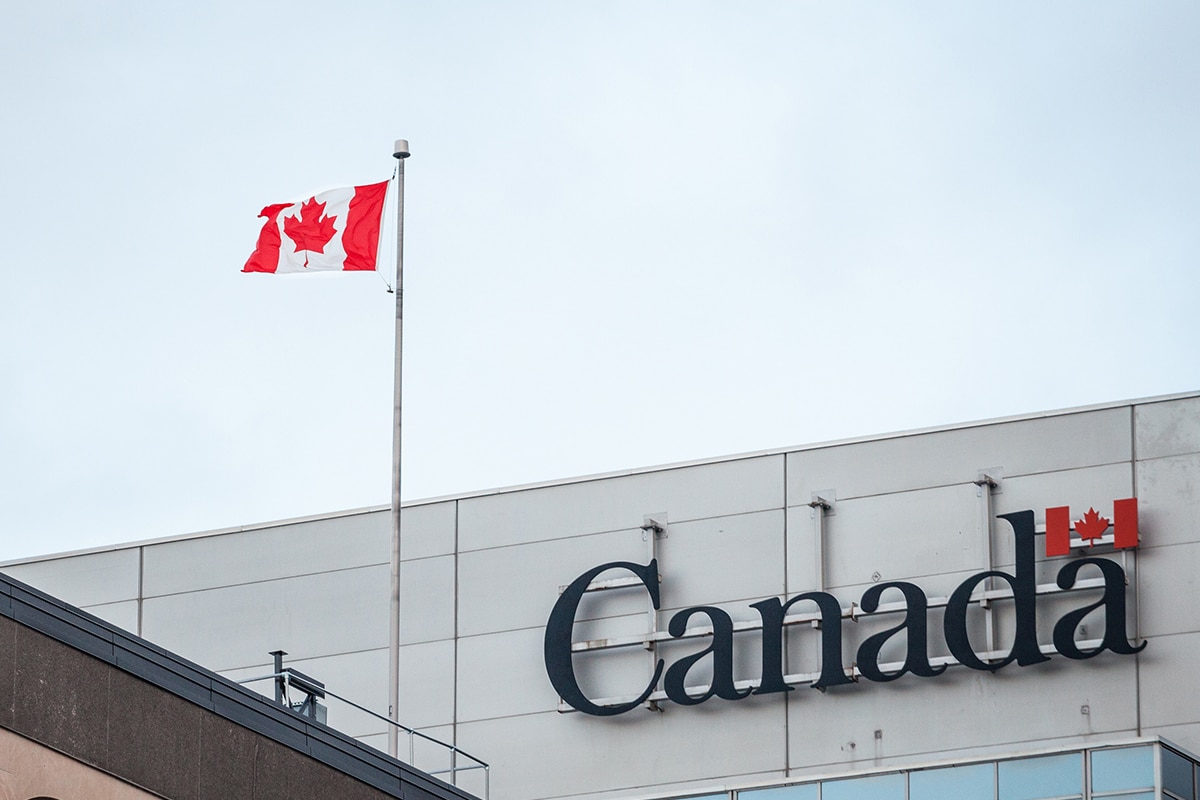

Until the end of 2015, application processing times for this program were listed by visa office. Around the New Year, however, the way in which processing times were listed changed. Instead of being listed by visa office, a single figure (in months) was given. Now, processing times are listed by individual countries where the application is being made.
This modification allows couples in a relationship to make better decisions on which sponsorship program to apply to: Inland or Outland. Moreover, in many cases it may allow sponsored persons to obtain Canadian permanent residence sooner than was previously the case — a factor that will come as a great relief to many Canadian citizens, permanent residents, and their foreign spouses and common-law partners who wish to be reunited in Canada as quickly as possible.
The processing times for certain countries, including the time it takes to make the initial assessment of the sponsor, are now less than one year. These countries include France, Australia, Spain, Tunisia, Belgium, Algeria, Morocco, New Zealand, Peru, Brazil, Iran, Israel, Portugal, Poland, Taiwan, Trinidad & Tobago, Ukraine, and Switzerland. For many other countries, the processing time is around one year or slightly longer. A full list can be found at the end of this article.
In March of this year, the new Liberal government of Canada announced in its Immigration Levels Plan that it intends to increase the number of new permanent residents who arrive in Canada through the Family Class category, including spouses and common-law partners. This factor may have the effect of further reducing application processing times.
About Outland Spousal/Common-Law Sponsorship
An Outland application is generally pursued when the sponsored partner is living outside of Canada. However, Outland applicants can still be in Canada and apply through the Outland program, and may be permitted to travel in and out of Canada throughout the application process. However, in such an instance it is at the discretion of Canadian immigration authorities as to whether the sponsored person may re-enter Canada during the process; it is also at their discretion as to whether the application may continue to be processed if the sponsored person leaves Canada during the process.
Outland applications are processed through the visa office that serves the applicant’s country of origin, or where they have been lawfully admitted for at least one year.
It should be noted that, though the processing times are now published in a different way (by country), eligibility criteria for the program remains the same. In order to be a sponsor, an individual must:
- be 18 years of age or older;
- be a Canadian citizen, Registered Indian or permanent resident;
- be sponsoring a member of the family Class;
- live in Canada or provide evidence, if a Canadian citizen living outside of Canada, that he or she will live in Canada once the person he or she is sponsoring becomes a permanent resident;
- sign an agreement with his or her spouse or common-law partner confirming that each partner understands their obligations and responsibilities;
- sign an undertaking promising to provide for the spouse or common-law partner’s basic requirements and, if applicable, those of his or her dependent children; and
- prove that he or she has sufficient income to provide basic requirements for the spouse or common-law partner’s dependent children, if applicable.
The person being sponsored (and their family members, if applicable) must:
- complete and sign the appropriate forms;
- undergo a medical examination prior to submitting the application (results are valid for 12 months);
- pass criminal and security verifications;
- obtain a passport and, in some countries, an exit visa; and
- attend an interview at a Canadian visa office, if required.
The other option: Inland Sponsorship
The other potential option for Spousal/Common-Law Sponsorship is the Inland route. Inland sponsorship is when the couple is together in Canada and the foreign spouse/common-law partner has temporary status in Canada, either as a worker, student, or visitor. The downside to the Inland route is that applications typically take longer to process.
However, the person being sponsored may be eligible for a much-coveted open work permit while the sponsorship application is being processed. In December, 2014, the government of Canada launched a pilot program through which sponsored persons through the Inland route may be issued open work permits before the ‘approval in principle’ decision has been made on their application. This pilot program was extended in December, 2015, and remains in place today.
At the time of writing, according to Immigration, Refugees and Citizenship Canada (IRCC, formerly CIC), total processing times for Inland Spousal/Common-Law Sponsorship is 26 months.
Both options now have advantages
“For individuals who have the option of choosing the Outland or Inland route, both options now present more advantages than previously. On the one hand, reduced Outland processing times means that couples may be reunited with permanent resident status sooner, allowing them to build their lives, careers, and families in Canada with more confidence that their long-term future here is secure. On the other hand, the open work permit pilot program through the Inland route has, by and large, been a great success,” says Attorney David Cohen.
“For most individuals and couples who realistically only have the Outland option, reduced processing times are a huge bonus. As we know from history, however, sponsorship processing times may fluctuate over the long term. Therefore, I would advise Canadian citizens and permanent residents, and their spouses and common-law partners, to prepare an application sooner rather than later. In doing so, they could be reunited in Canada, living and working here, well before the end of 2017 and, in many cases, much sooner than that.”
To find out if you and/or your spouse/common-law partner are eligible for sponsorship, please fill out a free online assessment today.
Outland Spousal/Common-Law Sponsorship Processing Times
Country | Processing time (in months) |
Afghanistan | 36 |
Albania | 9 |
Algeria | 8 |
Angola | 17 |
Antigua and Barbuda | 17 |
Argentina | 17 |
Armenia | 17 |
Aruba | 17 |
Australia | 11 |
Austria | 17 |
Azerbaijan | 17 |
Bahamas | 17 |
Bahrain | 17 |
Bangladesh | 26 |
Barbados | 17 |
Belarus | 17 |
Belgium | 10 |
Belize | 17 |
Benin | 17 |
Bermuda | 17 |
Bolivia | 17 |
Bosnia and Herzegovina | 13 |
Botswana | 17 |
Brazil | 8 |
Brunei | 17 |
Bulgaria | 13 |
Burkina Faso | 17 |
Burma (Myanmar) | 17 |
Burundi | 17 |
Cambodia | 26 |
Cameroon | 14 |
Canada | 16 |
Cape Verde | 17 |
Cayman Islands | 17 |
Central African Republic | 17 |
Chad | 17 |
Chile | 17 |
China (People`s Republic of) | 14 |
Colombia | 15 |
Comoros Island | 17 |
Congo | 17 |
Costa Rica | 16 |
Côte d’Ivoire | 13 |
Croatia | 17 |
Cuba | 14 |
Cyprus | 17 |
Czech Republic | 17 |
Democratic Republic of the Congo | 25 |
Denmark | 17 |
Djibouti | 17 |
Dominica | 17 |
Dominican Republic | 15 |
Ecuador | 17 |
Egypt | 14 |
El Salvador | 15 |
Equatorial Guinea | 17 |
Eritrea | 17 |
Estonia | 17 |
Ethiopia | 20 |
Fiji | 14 |
Finland | 17 |
France | 10 |
Estonia | 17 |
Gabon | 17 |
Gambia | 17 |
Georgia | 17 |
Germany | 13 |
Ghana | 14 |
Greece | 12 |
Grenada | 17 |
Guatelama | 17 |
Guinea | 17 |
Guinea-Bissau | 17 |
Guyana | 14 |
Haiti | 21 |
Honduras | 17 |
Hong Kong SAR | 13 |
Hungary | 17 |
Iceland | 17 |
India | 20 |
Indonesia | 17 |
Iran | 10 |
Iraq | 23 |
Ireland | 13 |
Israel | 11 |
Italy | 12 |
Jamaica | 20 |
Japan | 12 |
Jordan | 23 |
Kazakhstan | 17 |
Kenya | 20 |
Kosovo | 17 |
Kuwait | 14 |
Kyrgyzstan | 17 |
Laos | 17 |
Latvia | 17 |
Lebanon | 15 |
Lesotho | 17 |
Liberia | 17 |
Libya | 17 |
Lithuania | 17 |
Luxembourg | 17 |
Macao SAR | 17 |
Madagascar | 17 |
Malaysia | 17 |
Maldives | 17 |
Mali | 17 |
Malta | 17 |
Martinique | 17 |
Mauritania | 17 |
Mauritius | 17 |
Mexico | 17 |
Moldova | 16 |
Mongolia | 17 |
Montenegro | 17 |
Morocco | 9 |
Mozambique | 17 |
Namibia | 17 |
Nepal | 14 |
Netherlands | 16 |
New Caledonia | 17 |
New Zealand | 11 |
Nicaragua | 17 |
Niger | 17 |
Nigeria | 14 |
Norway | 17 |
Oman | 17 |
Pakistan | 28 |
Palestinian Authority (Gaza) | 13 |
Palestinian Authority (West Bank) | 13 |
Panama | 17 |
Papua New Guinea | 17 |
Paraguay | 17 |
Peru | 9 |
Philippines | 13 |
Poland | 11 |
Portugal | 9 |
Puerto Rico | 17 |
Qatar | 13 |
Romania | 13 |
Russia | 13 |
Rwanda | 17 |
Saudi Arabia | 17 |
Senegal | 18 |
Serbia | 13 |
Seychelles | 17 |
Sierra Leone | 17 |
Singapore | 13 |
Slovakia | 17 |
Slovenia | 17 |
Somalia | 17 |
South Africa | 15 |
South Korea | 14 |
South Sudan | 17 |
Spain | 9 |
Sri Lanka | 13 |
St. Kitts and Nevis | 17 |
St. Lucia | 16 |
St. Vincent and the Grenadines | 41 |
Sudan | 17 |
Suriname | 17 |
Sweden | 18 |
Switzerland | 11 |
Syria | 12 |
Taiwan | 11 |
Tajikistan | 17 |
Tanzania | 17 |
Thailand | 29 |
Timor-Leste (Timor oriental) | 17 |
Togo | 17 |
Trinidad and Tobago | 11 |
Tunisia | 8 |
Turkey | 12 |
Turks and Caicos Islands | 17 |
Uganda | 26 |
Ukraine | 10 |
United Arab Emirates | 13 |
United Kingdom | 14 |
United States of America | 15 |
Uruguay | 17 |
Uzbekistan | 17 |
Venezuela | 17 |
Vietnam | 24 |
Yemen | 17 |
Zambia | 17 |
Zimbabwe | 17 |
There is currently not enough data to provide information on the following countries: Andorra, Anguilla, Bhutan, Bonaire, British Virgin Islands, Holy See, Kiribati, Liechtenstein, Macedonia, Malawi, Marshall Islands, Micronesia (Federated States of), Monaco, Nauru, North Korea, Samoa, San Marino, Sao Tome and Principe, Solomon Islands, Swaziland, Tahiti, Tonga, Turkmenistan, Tuvalu, US Virgin Islands, Vanuatu.
© 2016 CICNews All Rights Reserved
